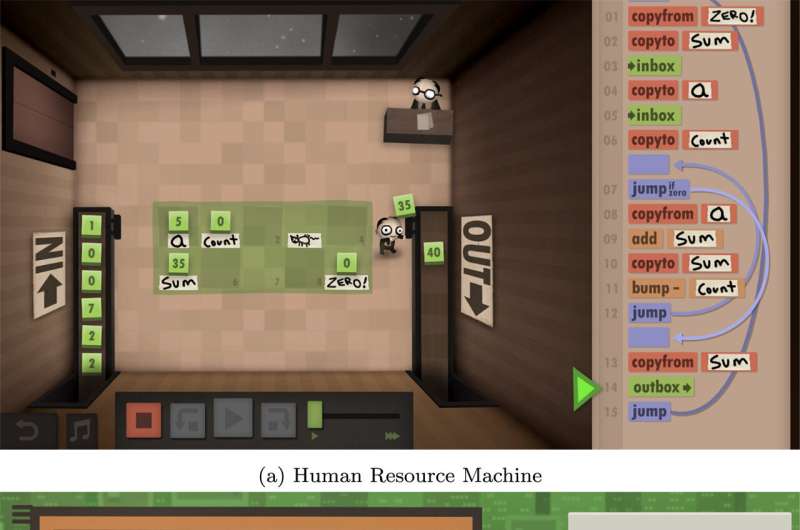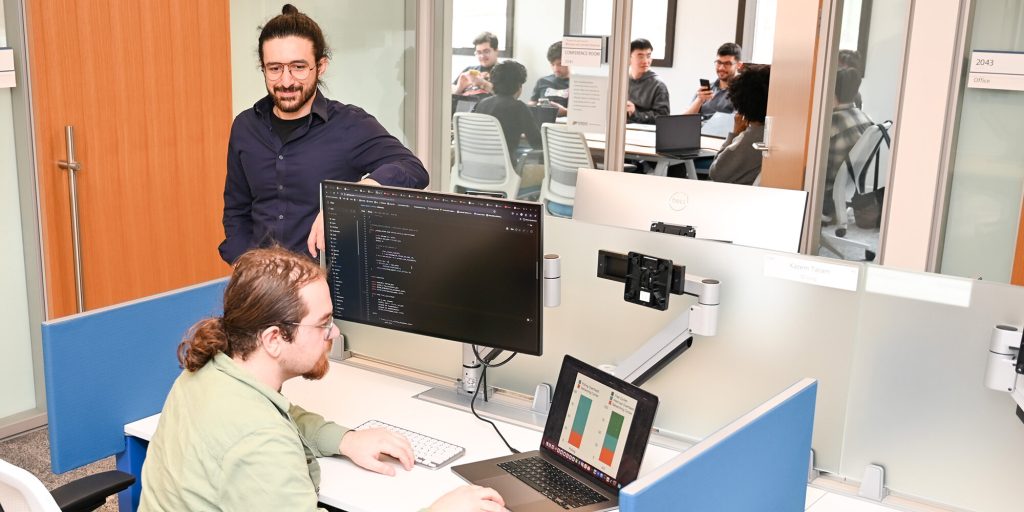
As our world becomes more digitized, the need for computer programmers is on the rise, prompting a greater demand for training in coding skills. Many aspiring coders come from various professional backgrounds and are seeking to make a career change. For them, mastering computational thinking and programming is crucial for a successful transition.
A research initiative from the Universitat Oberta de Catalunya (UOC) has uncovered an exciting tool: commercial video games typically played for fun can actually aid in learning programming.
Joan Arnedo and David García-Solórzano, both faculty members at UOC’s Computer Science, Multimedia, and Telecommunications department, led a study where they highlighted the effectiveness of two entertaining video games. Their research focused on how these games can enhance the confidence of students enrolled in beginner programming courses.
While prior studies validated the effectiveness of games specifically designed for educational purposes (known as serious games), research around commercially available games is rare.
The findings, detailed in a study published in the journal Entertainment Computing, followed over 50 UOC students from diverse academic paths for six weeks. Participants primarily included students from Computer Engineering, Applied Data Science, Telecommunications, and even Video Game Design and Development master’s programs.
During the study, students aged 18 to 63, none of whom had substantial coding knowledge, were encouraged to play the games “Human Resource Machine” and “7 Billion Humans.” “These games are highly rated on major digital platforms,” noted Arnedo. “Our hypothesis was that their challenging content could ease the learning curve in an introductory course on programming fundamentals.”
“While we didn’t expect perfect scores from everyone, our main interest was to see if their confidence in successfully completing the course improved, and indeed, we observed that it did,” he added.
Both games place players in scenarios where humans must navigate tasks given by artificial intelligence, requiring them to process large amounts of data and respond efficiently.
“In these programming games, players must tackle puzzles using programming instructions—either coding directly or in a more conceptual manner. This approach fosters computational thinking, which is a primary goal we aim to promote among students,” the researchers explained.
Boosting Confidence and Learning Through Play
Throughout the six-week study, the research team monitored the students’ development through questionnaires, self-efficacy assessments, and personal journals reflecting on their experiences. The journal entries offered enlightening insights.
“Before playing, I had no programming knowledge, so I really had to put in extra effort. But thanks to these games, I’m beginning to understand concepts I previously struggled with, and I think I’ll catch up in no time,” shared one student.
“Solving problems became inspiring and really boosted my self-confidence,” mentioned another.
“Every week I see gradual improvement, not just in my course, but also in the games. It’s comforting to recognize my progress, even when it feels slow during regular study sessions,” added a third participant.
The analysis revealed that these games positively influenced students’ interests and self-efficacy. However, certain educational considerations must be kept in mind for this approach to be successful.
Students appreciated the games, particularly those juggling work and family commitments, as they found them beneficial for developing computational thinking and problem-solving skills.
While the excitement of using the games tapered off over time, participants consistently valued their usefulness. By weeks two and three, some individuals remarked that they were beginning to “think like a computer,” indicating their growing awareness of their programming problem-solving skills.
Introducing a New Educational Tool with Challenges
Despite the positive feedback, the research team noticed that some students encountered obstacles and frustration during challenging levels. This was particularly problematic early in the course, especially when learning became more demanding. “We also noticed a bit of frustration since gamers typically expect a fun experience,” Arnedo elaborated.
The researchers suggest supplementing this innovative educational tool with additional resources, such as hint sheets or guides to better align game difficulties with the course materials.
Encouraged by the findings, the researchers are exploring further studies within UOC’s newly launched Coding School. The school, which began in October, trains specialists from scratch in three programming languages: JavaScript, Python, and Java. The curriculum is structured into six levels, aligning with the Common European Framework of Reference for Languages (A1 to C2). Currently, the first four levels are offered, with the higher levels being introduced in the coming years.
“It’s not just about mastering programming language syntax; the real challenge lies in understanding how to approach problem-solving conceptually. This conceptual leap is often the most difficult part for learners,” they emphasized.
“Utilizing these or similar games to navigate this challenge could be a promising strategy, but we need to address hurdles like licensing before any implementation can take place,” Arnedo concluded.
More information:
Joan Arnedo-Moreno et al, Programming Fun(damentals): Using commercial video games to teach basic coding to adult learners, Entertainment Computing (2024). DOI: 10.1016/j.entcom.2024.100850
If you would like to see similar Tech posts like this, click here & share this article with your friends!


